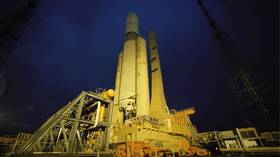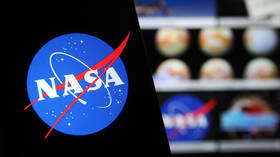Russia’s space agency responds to Western sanctions

Roscosmos will cease work on joint space projects with Europe and the United States and instead seek cooperation with China, the head of the Russian space agency Dmitry Rogozin announced on Saturday.
Rogozin told Tass news agency on Saturday that he had given his team an order to start negotiations with Beijing on coordination and mutual technical support of all deep space missions, including the ‘Venera-D’ project, the first Russian mission to Venus since Soviet times.
“Under the conditions of sanctions, US participation in the project is impossible,” Rogozin said.
Earlier on Saturday, Rogozin also announced the suspension of cooperation with European partners on launches from the Kourou spaceport in French Guiana.
In a tweet, Rogozin said Roscosmos was suspending the cooperation in light of new sanctions and “recalling its technical staff, including the launch team.”
The European Space Agency (ESA) has been using the Russian-made Soyuz rockets to send some of its satellites into orbit. Kourou’s proximity to the equator makes it an ideal place for space launches.
NASA said on Friday, however, that despite new sanctions and export controls imposed on Moscow it would continue working with Roscosmos on the operation of the International Space Station (ISS).
The West has implemented a harsh new wave of sanctions on Russia following its military attack on Ukraine, with restrictions varying from banning operations of Russian banks and companies to airspace closures, the suspension of visas, and personal sanctions aimed at President Vladimir Putin and Foreign Minister Sergey Lavrov.
US President Joe Biden said on Thursday that restrictions slapped on Moscow would “degrade their aerospace industry, including their space program.”
Russia insists that its offensive in Ukraine was its only option to protect the Donetsk and Lugansk People’s Republics, which it recognizes as independent states, and to ensure that Russia would not be put under threat by NATO from Ukrainian territory. Moscow is now working on retaliation measures. Earlier on Saturday, Putin's spokesperson Dmitry Peskov said that analysis and coordination of efforts between various agencies would be required to provide a response which “would best serve” Russia’s interests.













